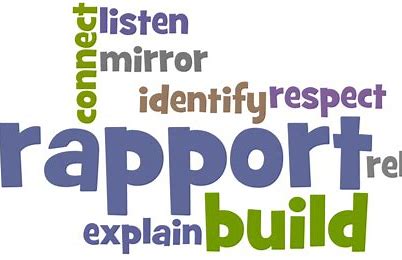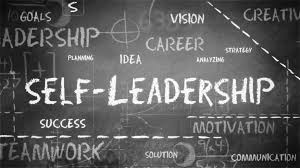First, let’s define what is rapport?

Rapport is a relationship of mutual understanding or trust and agreement between people. It is what happens at an unconscious level that makes us ‘click’ and is enhanced by a perception of likeness and liking. It includes the ability to see the other person’s point of view (even though you may not necessarily agree with it), and is a vital element in any form of communication, including the business context.
Indicators of good rapport include:
- Similar body posture
- Gesture in similar ways
- Same rhythm in movement and speech
- Breathing levels are similar
- Voice tone
Why is rapport important?
How often have you heard “She was so rude”, “He just didn’t seem to care”, “You don’t understand”, “I’m not sure if I trust him”. Rapport gives the ability to relate to others in a way that creates a climate of trust, openness and understanding. It is a key part of building relationships in the business world.
How to achieve great rapport
Think of people with whom you already have great rapport. What is it you do, how do you communicate and what do you talk about? All these factors can give us a clue to the key aspects of building rapport. But what can you do in business if it doesn’t occur naturally? You need to pay conscious attention to Matching or mirroring (not mimicking) those elements that are part of natural rapport.
Research indicates that only 7% of our communication comes from the words that we use – for example the use of common expressions, terminology, etc.
How we say things – that is our tone, volume, pitch, emphasis – accounts for a further 38%.
And a massive 55% comes from a person’s appearance and physiology – how you sit or stand, your facial expressions and so on.
This means that 93% is unconscious.
So how do we make use of these factors? Well, the closer we can match these (not mimic) to the other person the more likely we are to build rapport.
So here are my 8 tips.
1. Match your tone, pace, volume and inflection – without it being obvious – to the person with whom you’re talking. I’m not talking about mimicry here, rather a subtle shift in the way you communicate.
2. Listen to the type of language and terminology they use so you can mirror this.
3. Make your body language open. Uncross your arms; avoid covering your heart and turn to face the person you are talking to. This encourages openness and trust.
4. Find common ground from the beginning of the conversation. Generally, people like people who are like themselves.
5. Show your interest. Make eye contact and ask questions
6. Show that you’ve been listening by asking appropriate questions. Sincerely. Most people spend 95% of their time thinking about themselves.
7. Ask questions: People love it when you show genuine interest in what they’re doing.
8. Step into the other person’s shoes and try imaging life from their viewpoint. We all have different perspectives on things, so don’t assume other people see things exactly the way we do.
The above points are easy to practice – and you’ll be amazed at the results. Try them and watch your rapport build.
A great resource I recommend if you’re wanting to learn how to better connect with your clients, team or employees is the book Everyone Communicates Few Connect by John C. Maxwell.
Talk is cheap. Everybody does it. The question is, how can you make your words matter and influence the outcome you want? How can you really connect with others? Inside this book, Maxwell offers his proven method – five principles and five practices so you can learn how to better connect.
Want to develop this skills or practice them? Let’s connect.

